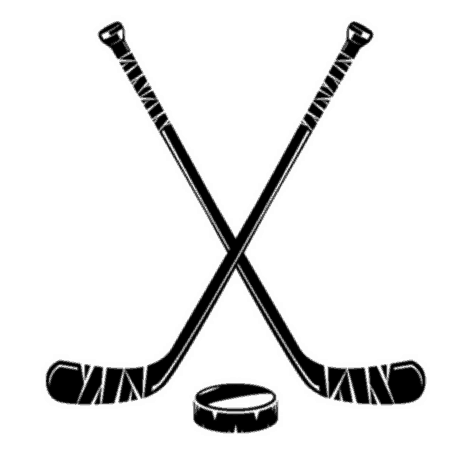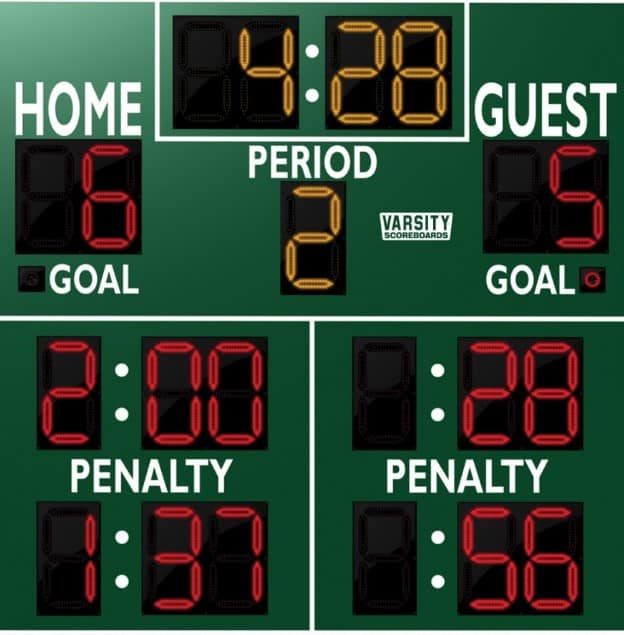My son wants to play hockey, so I researched how much time we would be spending at the rink amongst many other topics. I am familiar with NHL games, but I was curious about how long youth games last.
A youth hockey game is 60 minutes long. Youth games have a 60-minute running clock. Although the clock is continuous, play stops and resumes at the referee’s whistle. In some youth leagues, there are 3 periods lasting 12 minutes each. The clock stops throughout the game for a variety of reasons.
Game time is helpful, but with the craziness of running from event to event with kids, I took a deeper dive into total time from getting to the rink to packing up the car.
Start To Finish
The total time of a game from warm-up to the last horn is 1 hour and 30 minutes. Keep in mind, there are other factors that play into time with hockey that traditional sports do not contain. The biggest one that comes to mind is putting on all the gear. Anticipate spending 15-20 minutes assisting your child to get dressed for the game and then the reverse before leaving the arena.
In other sports, there is not a lot of gear to put on. In hockey, there are 12+ pieces of equipment to strap on. You know your kid and how well they put clothes on today; assume a similar pace at which they will assemble their hockey gear. Expect to help put all that gear on… and not get much help from your kid.
I recommend spending 10 minutes stretching before putting most of the equipment on and do small drills before stepping on the rink. Spend another 20 minutes to warming up on the rink. Below is a total breakdown of time spent from packing up the bag to leaving the arena after the game.
- Packing car- 5 minutes
- Putting gear on & warming up- 30 minutes
- On ice warm-up- 15 minutes
- Total game time- 60 minutes
- Pictures, team meeting, taking the gear off, etc.- 20 minutes
Add your travel time to the 130 minutes of total time, and you will pinpoint how long you can expect to spend on your kid’s hockey game. We will discuss other factors that will slightly change the total time.
What Stops The Hockey Game?
The referees blowing their whistle stops play. The clock may or may not stop depending on the league.
Play will stop when:
- A penalty is committed
- A goal is scored
- A goalie posses the puck and does not return it to play
- The puck is hit out of the rink
- A serious in injury occurs
Most of these reasons are objective; however, there are few that are subjective and left up to the referee to decide. For example, when a goalie keeps the puck for longer than about 3 seconds; but if the referee sees the goalie gather the puck and then attempt to move it to a teammate, the whistle will not be blown.
When playing with a running clock, there will be different rules applied to the last few minutes of the game so the team in the lead cannot waste time by stopping play. These rules may include stopping the clock when the whistle blows in the last 3 minutes of the 3rd period or assessing a penalty to a team trying to run out the clock by taking unnecessary time between breaks in the game.
Youth Hockey leagues usually have a mercy- rule in place. Instead of ending the game early like traditional American sports, the officials will continue to run the clock no matter what happens during the game.
Overtime Length
The overtime period consists of a 5 minute, sudden-death period. After 1 goal is scored, the game is over. Overtime occurs when the score is tied at after 3 periods or the running clock of 60 minutes. Recently, the NHL changed their overtime rules to make the overtime period shorter, and allow the audience to be more engaged. Each team is allowed 3 players plus a goalie. Many leagues have adopted this structure. In the playoffs, leagues mirror more traditional period lengths
Does Age Impact Time?
As kids get older and more independent, time will change. Maybe they put their own pads and jersey on or drive themselves to the game. As they grow older, more time will be required. Practices will increase to 2 or 3 times per week on top of games. Travel hockey will require weekend tournaments, and you will find your self-driving across the country (and between the USA and Canada).
Once your child reaches 15 years old, there is a 15-20 minute break between the 2 and 3 periods to clean the ice. At this age level, the game is structured very similarly to an NHL game without the commercial breaks.
Travel Hockey Time Commitment
If you are familiar with travel baseball or a similar sport, you know the exhausting time commitment that comes along with it. This is serious. You can expect the team to play 60-80 games, with half of those being across the country. The more southern you live, the more travel you will do. Most other traveling sports is regional with a cross country sprinkled in. This is across the country most weekends.
If this is new to you, I highly recommend talking with other experienced parents in this arena. Focus on how this will affect the family, Missing a few games here and there will not be a big deal, but make sure your kid can attend most of the games.
Every league has its own variations to these time rules, but these are the most widely accepted rules. Ensure you look at the rules before signing your kid up for the league.
NHL vs. Youth Hockey
When watching an NHL game, look to spend 2.5 hours of your time from start to finish. After periods 1 and 2, there is a 20-minute intermission for the Zamboni to shave off the top layer of the ice, and spread a fresh layer of water on top of the ice. This new water freezes giving the rink a smoother and faster playing surface for the hockey players.
Once you add playing and Zamboni time, you will have time for stoppages in play. Also, there are 3 TV time outs (commercials) during the periods after a whistle. As a viewer, you can expect more commercials in between the periods. A sudden death, 5 minute overtime will ensue if the game is tied after period 3.

